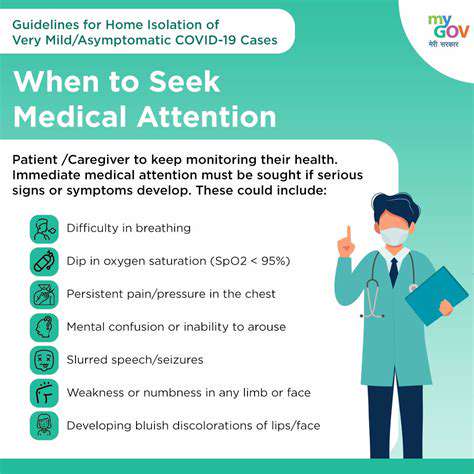OTC Pain Relievers: Ibuprofen vs. Acetaminophen vs. Naproxen for Headaches
Naproxen: A Powerful NSAID for Headache Pain
Understanding Naproxen
Naproxen, a nonsteroidal anti-inflammatory drug (NSAID), is a common over-the-counter medication used to relieve a wide range of pain and inflammation. It works by reducing the production of prostaglandins, which are chemicals that contribute to pain and inflammation. This makes it an effective choice for various conditions, including headaches, menstrual cramps, and arthritis pain. Understanding how naproxen works is key to appreciating its potential benefits and limitations.
Effective Relief for Headaches
Naproxen is often a go-to medication for headache pain relief. Its ability to reduce inflammation and pain signals can provide substantial relief from various types of headaches, including migraines and tension headaches. While not a cure-all, it can often bring significant symptom relief, allowing individuals to function more comfortably.
However, it's important to note that naproxen isn't a quick fix for all headaches. If your headache persists or worsens despite taking naproxen, it's essential to consult a healthcare professional to determine the underlying cause.
Mechanism of Action
Naproxen's mechanism of action involves inhibiting cyclooxygenase (COX) enzymes. Specifically, it targets both COX-1 and COX-2 enzymes, leading to a reduction in prostaglandin production. This dual effect contributes to its broader range of pain-relieving and anti-inflammatory capabilities. Understanding this mechanism is crucial for comprehending why naproxen is so effective against a variety of conditions.
Dosage and Administration
Appropriate dosage and administration of naproxen are crucial for maximizing its effectiveness and minimizing potential side effects. Always follow the instructions on the product label and consult a healthcare professional if you have any doubts or concerns. The recommended dosage and frequency of use will vary depending on the specific condition being treated and the individual's health status. Incorrect dosage can lead to adverse effects, so meticulous attention to directions is paramount.
Potential Side Effects
Like any medication, naproxen can have potential side effects, although they are generally manageable. Common side effects include gastrointestinal issues such as upset stomach, nausea, heartburn, and diarrhea. In some cases, more serious side effects, such as stomach ulcers or bleeding, can occur. It's essential to be aware of these potential side effects and discuss them with a healthcare provider before taking naproxen, especially if you have pre-existing medical conditions.
Comparison to Other NSAIDs
Naproxen is often compared to other NSAIDs, such as ibuprofen. While both are effective pain relievers, they may have different strengths and weaknesses. The duration of action and potential side effects may vary. Understanding the nuances of different NSAIDs can help individuals make informed decisions about which medication is best suited for their specific needs. Consulting a healthcare professional can provide further insight into these comparisons.
Important Considerations
Individuals with certain medical conditions, such as kidney or liver problems, should use naproxen with caution or avoid it entirely. Pregnancy and breastfeeding are also important considerations. Before taking naproxen, it's essential to discuss any potential drug interactions or underlying health concerns with a healthcare professional. This precaution is crucial for ensuring the safe and effective use of naproxen. Proper medical guidance can prevent potential complications and ensure that the medication is used appropriately.
Important Considerations When Choosing a Pain Reliever
Understanding Different Pain Reliever Types
Over-the-counter (OTC) pain relievers come in various forms, each with its own mechanism of action and potential side effects. Understanding the different types, such as nonsteroidal anti-inflammatory drugs (NSAIDs) like ibuprofen, acetaminophen, and others, is crucial for selecting the appropriate medication for your specific needs. Different types of pain, like muscle aches, headaches, or menstrual cramps, may respond better to certain types of pain relief. Thorough research and consultation with a healthcare professional can help you navigate these options and ensure you're using the most effective and safest medication.
Acetaminophen, for example, primarily reduces fever and relieves mild to moderate pain. NSAIDs, on the other hand, offer broader pain relief by reducing inflammation. Knowing the difference between these mechanisms is essential to understanding how each medication works and how it might impact your body.
Assessing the Severity and Duration of Pain
The intensity and duration of your pain are critical factors in choosing the right pain reliever. A mild headache might respond well to a simple analgesic, while a severe, persistent injury might require stronger medication or professional medical attention. Consider the duration of the pain. Is it short-term, like a headache after a stressful day, or is it long-term, such as chronic muscle pain? The appropriate choice of pain relief will vary greatly depending on the duration of the discomfort.
Considering Potential Side Effects
All pain relievers, even OTC medications, carry potential side effects. Understanding these side effects is essential to make an informed decision. Ibuprofen, for example, can cause stomach upset or allergic reactions in susceptible individuals. Acetaminophen, while generally safe, can be harmful in excessive doses. Careful consideration of potential side effects, especially if you have pre-existing health conditions, is vital.
Evaluating Your Medical History and Allergies
Your medical history and any allergies are crucial factors to consider when choosing a pain reliever. Certain conditions, such as kidney problems or ulcers, might make some medications inappropriate. Knowing your medical history allows you to make informed decisions about your pain relief, and it's crucial to disclose any allergies or pre-existing conditions to your doctor or pharmacist before starting any new medication. This step helps to avoid potential adverse reactions.
Understanding Drug Interactions
Some medications can interact negatively with other medications or supplements you might be taking. This is particularly important for people who take multiple medications regularly. For instance, taking ibuprofen with blood thinners can increase the risk of bleeding. Carefully reviewing all medications and supplements you are currently taking, including over-the-counter ones, is essential when choosing a pain reliever. Consulting with a doctor or pharmacist is highly recommended before combining any new medications.
Dosage and Administration Instructions
Following the correct dosage and administration instructions is paramount for effective and safe pain relief. Taking more than the recommended dose can lead to adverse effects. Carefully read the label on the medication and follow the instructions provided. Understanding how to take the medication, whether by mouth or another method, is vital. Incorrect administration can diminish the effectiveness of the treatment or cause complications.
Seeking Professional Medical Advice
If pain persists or worsens despite using OTC pain relievers, it's essential to seek professional medical advice. Severe or chronic pain might require more intensive treatment. A healthcare provider can diagnose the underlying cause of the pain and recommend appropriate treatment options. Don't hesitate to consult a doctor if you experience unusual symptoms or if the pain is interfering with your daily life. Early intervention is crucial for effective management and prevention of potential complications.










